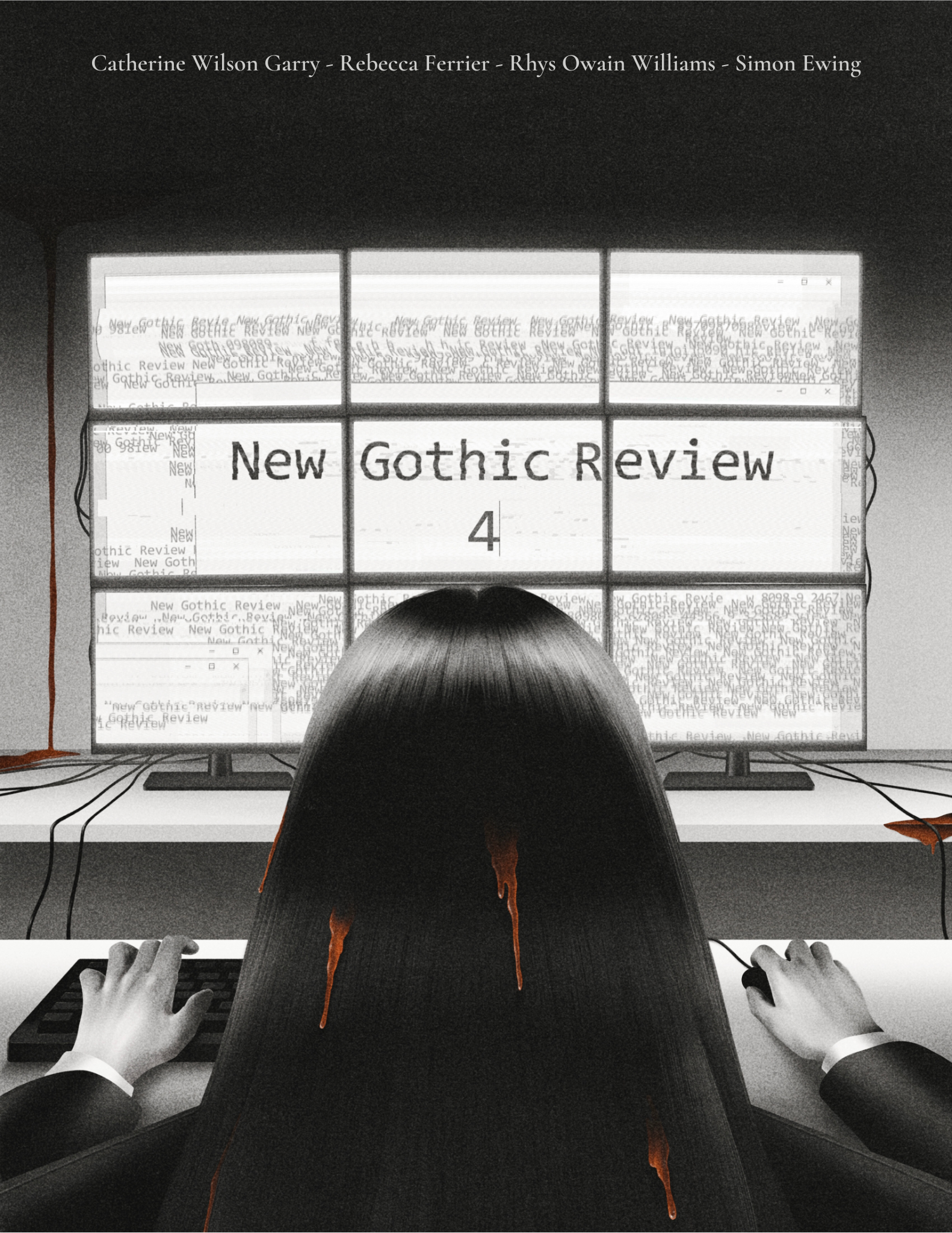
Charlotte Heather is a writer currently teaching creative writing online and running ‘the remote body’, a project that works to platform and collaborate on accessible digital events that prioritise chronically ill and disabled people. Charlotte’s writing tends to explore tangled notions of chronic illness, queerness and liminality.
We’re pretty faithless to formal definitions of what’s gothic and what isn’t. If you strip away the tropes and the familiar imagery, what do you feel is at the heart of gothic literature?
I suppose for me what I feel to be gothic has a particular atmosphere, something close to the uncanny that explores or hints at the unknown, creating a particular space or arena to explore elements of the human experience (or non-human experience). Which is perhaps a more long winded way of saying that gothic for me is often a feeling I get from a piece, something that sits at an intersection between unsettling and intriguing and weird.
How do you feel “A Haunting Too Close To The Heart” fits into that conception of gothic literature?
I wanted to use this gothic atmosphere as a space to interrogate feelings of the body, or a part of the body, being alien – be that due to illness, body dysmorphia, gender dysphoria or something else. These are feelings I’ve reckoned with, of experiencing the body or parts of it as almost uncanny. Though of course the body is a beautiful thing, our relationship with it often isn’t and so I think “A Haunting Too Close To The Heart” uses the unsettling space of the gothic to amp up the experience of those feelings and the isolation that can come with them.
Can you speak to any inspirations or influences for the piece?
A major influence on the piece and a lot of my work is my own experience of chronic illness, having to think about my body and my capacity, finding ways to adapt, it creeps into my work a lot and this piece holds elements of that within it, alongside my complex feelings about my body in regards to my gender. If I’m honest the story stemmed from the fact that I really don’t get on well with my chest. I think the literary influences that shaped the piece on a more subconscious level would likely be Carmen Maria Machado’s collection My Body and Other Parties, Kelly Link’s short stories, perhaps some Angela Carter and Sangeeta Bandyopadhyay’s Panty. I’m sure my large appetite for horror films had a fair influence too.
What piece of writing advice do you hold most dear?
As a writing tutor I think I dole out writing advice often, but I am quick to say if there is a writing ‘rule’ then there are plenty of examples of writers breaking those ‘rules’ to incredible effect. I think the most useful thing a writer can do is read, read widely, if you hate something then don’t feel as though you have to finish it but do try to put a finger on what it is that you don’t like, try to read beyond the confines of the genre you think you like best, try to read books from indie publishers that might be doing more interesting things than the bestsellers list, read translated books. Of course do all this to the capacity that you can manage.
We hope this magazine assists in blurring the perceived lines between so-called “genre fiction” and “literary fiction.” As a writer, do you embrace one of these categories over another? Why?
I suppose I lean toward saying I write literary fiction most often, but really I write a blend of things that could be classed as a number of genres. I think it’s important to blur the genre lines, and to avoid a kind of hierarchy of good art/bad art, and just general dismissive and pretentious attitudes. When I was younger I think I fell into that and these days I’m a happier writer and reader having embraced what I find interesting across genres.
We love learning about writers who have “gothic/ weird” tendencies but who typically aren’t labeled as “gothic.” Who’s someone you recommend we check out?
Sangeeta Bandyopadhyay, an author who lives and works in Kolkata and whose work has been translated into English by Arunava Sinha, published by Tilted Axis Press. Her work has an eeriness to it in places that I feel chimes with how I feel about gothic as a mood or atmosphere.




